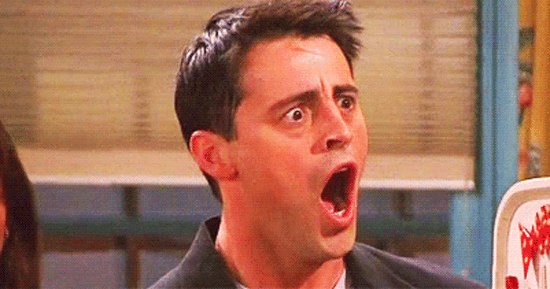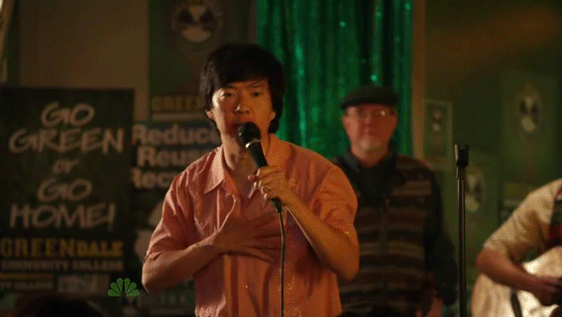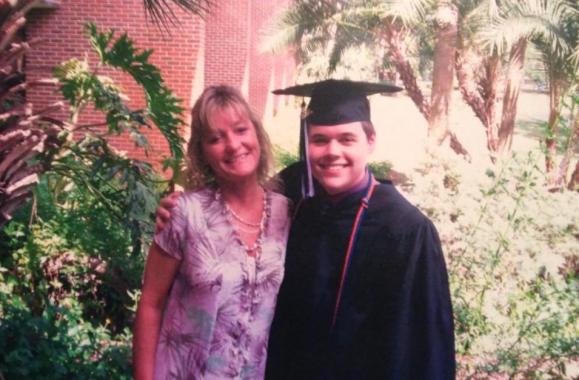It has been about a year since my Confirmation and I can already say that I love the Episcopal Church. There are plenty of reasons, many of which I’ve documented here, here, and here.
Not only do I love the national church, but I really love the church I attend, including the priests and congregants I’ve met. At this point, I don’t think I’ve ever been part of a more genuine, unconditionally loving congregation. While no church or denomination is perfect because no people are perfect, the Episcopal Church at least recognizes this and works together to improve.
As a former Southern Baptist, it has taken me time to understand that it really is OK to question things within the Church. This is great, though, because at this point in my life, I know I couldn’t be part of a church where I felt like I had to sit by silently as I witnessed things I disagreed with, or even experienced discrimination myself.
Given my affection for the national Episcopal Church and my local congregation, it is difficult to say, but there is one aspect of the Episcopal Church that has thoroughly disappointed me: the position on same-sex marriage taken by the bishop of the Diocese of Florida.
Bishop Samuel Johnson Howard has banned Episcopal priests from performing same-sex marriages in the diocese.
This is regardless of what an individual priest believes on this so-called “issue,” and it’s not just priests in the diocese who report to him: Even an affirming priest from an affirming diocese can’t come here and perform a same-sex marriage. As someone who is getting married in a few months, this hits very close to home.
This is possible even though the national Episcopal Church supports marriage equality because these regional bishops are permitted to ban same-sex marriages in their diocese. Bishop Howard is one of the relative few who have actually done it.
“The nature, purpose, and meaning of marriage are linked to the relationship of man and woman. The promises and vows of marriage presuppose husband and wife as the partners who are made one flesh in marriage,” reads a statement co-signed by Bishop Howard after the national Episcopal Church decided to allow marriage equality. “When we were ordained as bishops in the one, holy, catholic, and apostolic Church, we vowed to ‘guard the faith, unity, and discipline of the Church of God.’”
Even before that national meeting, called the General Convention, where the Episcopal Church made this decision, Bishop Howard issued a letter that he required be read aloud at all churches within the diocese, indicating that his position on marriage equality would not be changed.
“As your Bishop, I want to be clear about where we are as a Diocese as General Convention approaches. The policy of our diocese concerning the 2012 trial-use liturgies for blessing of same-sex couples remains the same. This liturgy is not approved for use in the Diocese of Florida.”
And yet, in that same letter, Bishop Howard said there would be great consideration when making such decisions.
“Some of our work this summer will surely get attention outside our church in the press and on the internet. Often these stories are told from a perspective that lacks attention to the great deal of reflection and prayer that go into making difficult decisions. Rarely does careful and prayerful consideration make good headlines or sound bites.”
How does someone go into a meeting with an open mind while also essentially saying his opinion will not change? Those two things are incompatible.
There is one way lesbian or gay Episcopalians in this diocese can get married in the Episcopal Church: They must physically leave the diocese and go somewhere else.
Same-sex couples in a diocese that has banned same-sex marriage, like this one, can be referred to another diocese that does allow same-sex marriage. I don’t find this to be acceptable or helpful.
Why would I want to have a random priest to marry us? If a priest or minister is going to be the officiant, I’d want someone who knows us. And why should I be relegated to certain physical locations and venue options solely because I’m marrying someone who happens to also be a man? Also, isn’t this option likely more costly?
It’s funny: conservative Christian pastors love to talk about how they fear being “forced” to perform a same-sex marriage. Yet, in this case, priests who would love to perform same-sex marriages are being forced not to in these non-affirming dioceses. They’re actively being hindered from fully proclaiming Christ’s love to all people.
Compared to other denominations, the Episcopal Church is progressive on many issues, including marriage equality. But this is discrimination by Bishop Howard.
According to the Episcopal Church itself, marriage is a “sacramental right,” like baptism and communion. But rites like baptism and communion are different and more important than marriage because they “…were given by Christ and are understood to be necessary for the Christian life of all persons.”
I can be baptized in this diocese.
I can be confirmed in this diocese.
I can be a church member in this diocese.
I can take communion in this diocese.
But I can’t get married in this diocese.
How does this make any sense? If things like baptism and communion are more important than marriage because they were given directly to us by God and the bishop’s issue was truly theological, wouldn’t he want to “guard the faith” by denying us these other more important sacraments as well?
If LGBTQ folks, including married ones, are able to take part in the sacramental rites given to us by God, why can’t we also be married in the Church?
You might be asking yourself why I’m writing all of this here instead of to the bishop. After all, wouldn’t it be more productive to have a conversation with him? At very least, it’s a great place to start, right?
I agree.
Even in their “minority report” after the General Convention voted to permit same-sex marriages, our bishop and the others who disagreed wrote this:
“Our commitment to the Church includes a commitment to our gay and lesbian brothers and sisters. We will walk with them, pray with and for them, and seek ways to engage in pastoral conversation. We rejoice that Jesus’ embrace includes all of us.”
Apparently, that “pastoral conversation” doesn’t involve the bishop actually conversing with us about this issue because I’ve tried to begin a conversation with him multiple times with no luck, only excuses as to why he hasn’t even responded. And I’ve been told the same thing has happened time after time after time with other local Episcopalians. And if he does respond, it’s to say he’s not discussing the topic any further. I’m pretty new to this whole Episcopalian thing, but it honestly reminds me of my Southern Baptist past and it’s certainly not welcoming.
Bishop Howard likes to talk about the importance of “evangelism.” Continuing to broadly discriminate against an entire group of people, in this case same-sex couples, hurts these efforts.
How do you think I feel whenever I want to invite an LGBTQ friend to church? What do I say?
While I’m willing to see all of the good in my local church and with my local priests, and to understand the nuances of the denomination, not all people are willing to do that, especially if they’re new to church or have previously been hurt by the Church. All they see is that they’re being discriminated against for who they love. They aren’t necessarily going to try to figure out exactly who is doing it and exactly why.
And I don’t blame them one bit.
My wedding plans are set and I am exceedingly happy with them. Also, while it would be nice to have a priest we know marry us, I don’t believe God’s presence will somehow be missing from our wedding simply because one man has banned priests from performing the ceremony. God is much bigger than any one person and God’s love is much greater and much too powerful to be diminished by Bishop Howard or anyone else.
Discrimination is discrimination, though, and couples like us at least deserve the opportunity to have our priests marry us. So my hope is that this discriminatory practice will end sooner rather than later and that Bishop Howard will develop a more expansive idea of what loving his neighbors truly looks like in action. It certainly isn’t by embracing discrimination and refusing to discuss it. It is almost time for the General Convention again, and same-sex marriage is sure to be discussed. Hopefully things change even more in favor of equality.
Before joining the Episcopal Church, I learned a lot about it and I’ve learned even more in my time as part of it. One of the things I love most is that we can ask questions and grow together. My prayer is that Bishop Howard will one day embrace this concept regarding this topic and eventually join the majority of the broader Episcopal Church by erring on the side of love and inclusion.
Because there should be no place for discrimination within the Church.
###
Click here to share your thoughts on marriage equality with Bishop Howard.


